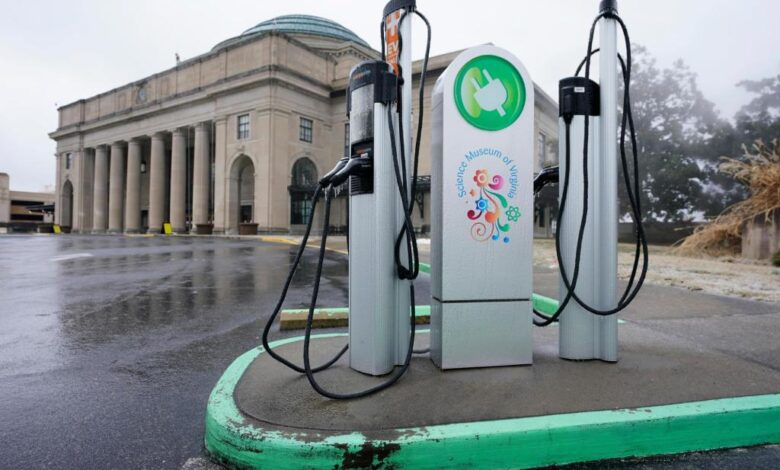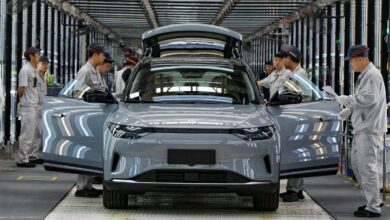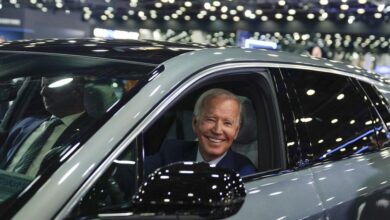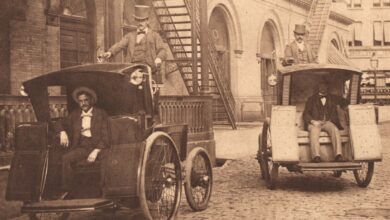Youngkin says Virginia will ditch California clean car standards requiring phase out of new gas vehicles by 2035

Gov. Glenn Youngkin said Wednesday his administration will withdraw Virginia from a plan to follow strict car emissions standards set by California.
The move, which will take effect when current standards expire at the end of 2024, drew applause from gasoline and auto dealer trade groups and condemnation from Virginia Democrats and environmental groups, who said the administration was overstepping its authority.
In an announcement, Youngkin said Virginia will not follow new California rules set to take effect in 2025, which mandate all new cars, trucks and SUVs sold in the state to run on electricity or hydrogen by 2035.
“Once again, Virginia is declaring independence — this time from a misguided electric vehicle mandate imposed by unelected leaders nearly 3,000 miles away from the commonwealth,” Youngkin said in the announcement. “The idea that government should tell people what kind of car they can or can’t purchase is fundamentally wrong.”
Democrats signed Virginia onto the California clean car standards in 2021. If the state did not adopt the California standards, it would still have to meet less stringent federal standards, which require 56% of new vehicles sold to be electric by 2032. The standards attempt to slow climate change by forcing a switch to cleaner electric vehicles.
Youngkin and Virginia Republicans have failed to repeal or scale back the 2021 legislation.
To justify the move to abandon the California standards, Youngkin cited a legal opinion from Virginia Attorney General Jason Miyares.
In the 9-page opinion, Miyares wrote the 2021 Virginia law authorized the state to follow an older version of the California standards, which expire at the end of the year. New California standards are set to take effect next year, but Miyares said Virginia is not bound to adhere to those. Miyares’ office told the Associated Press that the 2021 law bound Virginia to the California standards.
At an event Wednesday in Chester, Miyares defended his reversal by saying the 2021 law used permissive language rather than language that commands.
“The General Assembly members are free to introduce a new bill that tries to take this from being permissive to being mandatory,” said Miyares, a former Virginia Beach delegate. “They’re welcome to have that debate.”
The decision drew condemnation from Virginia Democratic leaders. In a news release, Senate Majority Leader Scott Surovell of Fairfax accused Youngkin of nullifying laws by press conference.
“The clean energy economy creates good high-paying jobs and helps us protect our environment,” added House Speaker Don Scott of Portsmouthcq comment=”cq” ]. “The Governor is taking us backwards.”
The move marks the latest Youngkin effort to undo environmental standards adopted by Democrats when they controlled the General Assembly. At the governor’s behest, a state board voted last year to withdraw Virginia from the Regional Greenhouse Gas Initiative.
An automobile dealership group with several Hampton Roads members applauded Youngkin’s decision, saying demand for electric vehicles had not materialized. The group originally supported the 2021 law.
“We respectfully have come to the point where we believe Virginia should uncouple itself from these standards at this time,” said Don Hall, president and CEO of the Virginia Automobile Dealers Association. “The lack of bipartisan support and funding for the standards means an unfunded mandate is weighing down Virginia with goals that are impossible to attain in the 2035 timeframe, as currently required.”
Around 97,000 electric vehicles are on the road in Virginia as of 2023, according to data collected by the Drive Electric Virginia initiative.
The leader of a gasoline trade group also congratulated Youngkin.
“We welcome Virginia into the growing number of states — both red and blue — that have rejected California’s ban on sales of new gas-powered cars and trucks,” said Chet Thompson, American Fuel & Petrochemical Manufacturers president and CEO, in a news release.
Environmental groups derided the decision as illegal and short-sighted. Trip Pollard, a senior attorney with the Southern Environmental Law Center, said Youngkin and Republicans had spent three years unsuccessfully trying to reverse the law.
“So, it’s interesting that after three years of attempts to repeal it, they suddenly decided that the governor could unilaterally repeal it,” Pollard said.
When asked if a lawsuit was likely to follow this action, Pollard said his group was looking at all available options.
Chesapeake Bay Foundation Virginia Staff Attorney Patrick Fanning said in a statement that Miyares’ opinion misinterprets the law, which he said requires the Air Pollution Control Board to both adopt and update clean car standards.
Trevor Metcalfe, 757-222-5345, trevor.metcalfe@pilotonline.com



